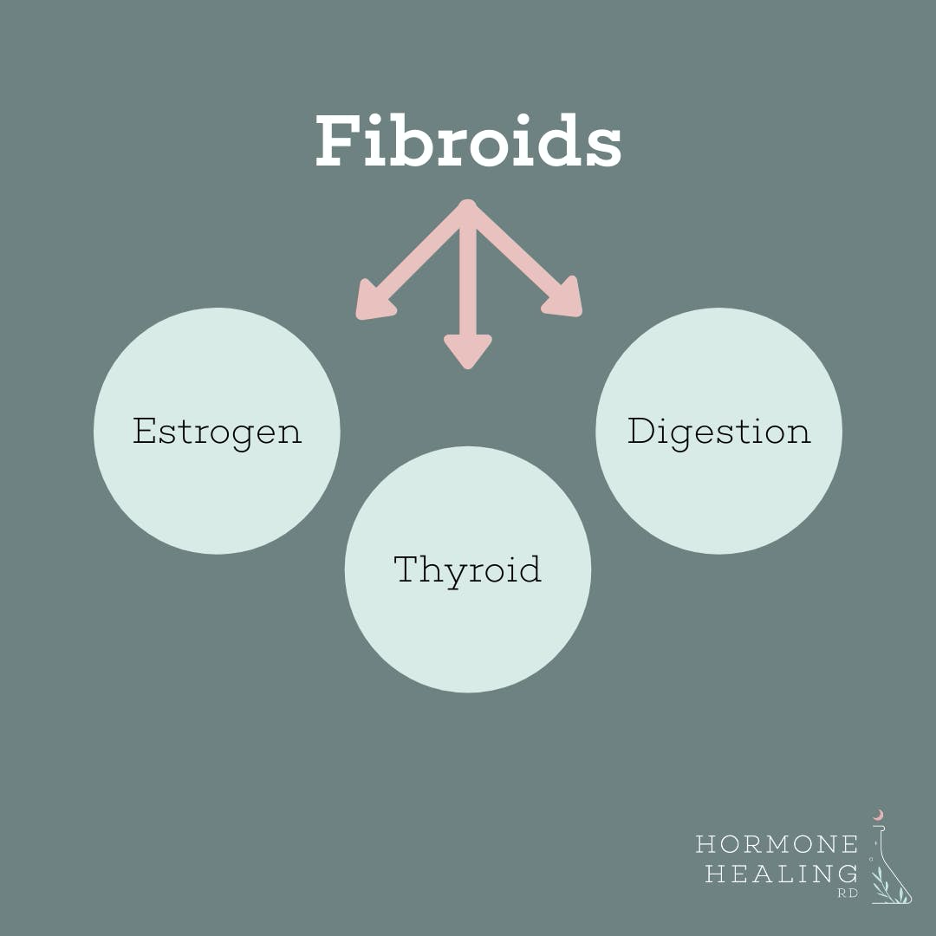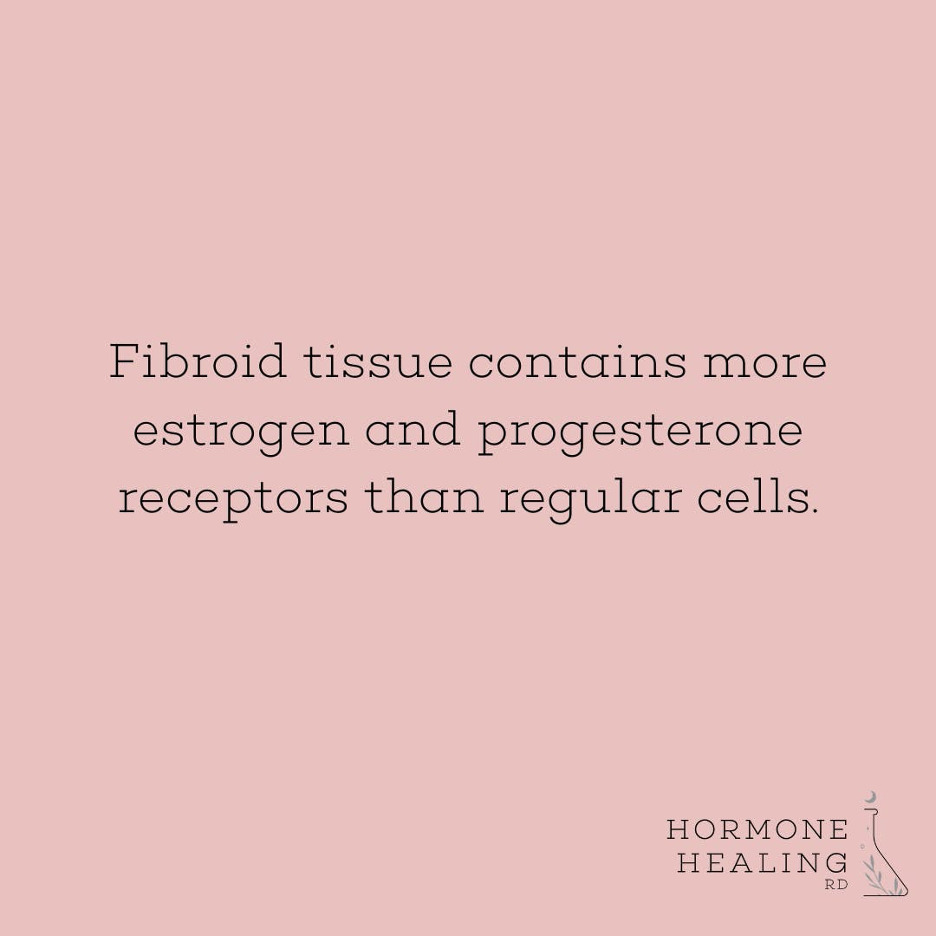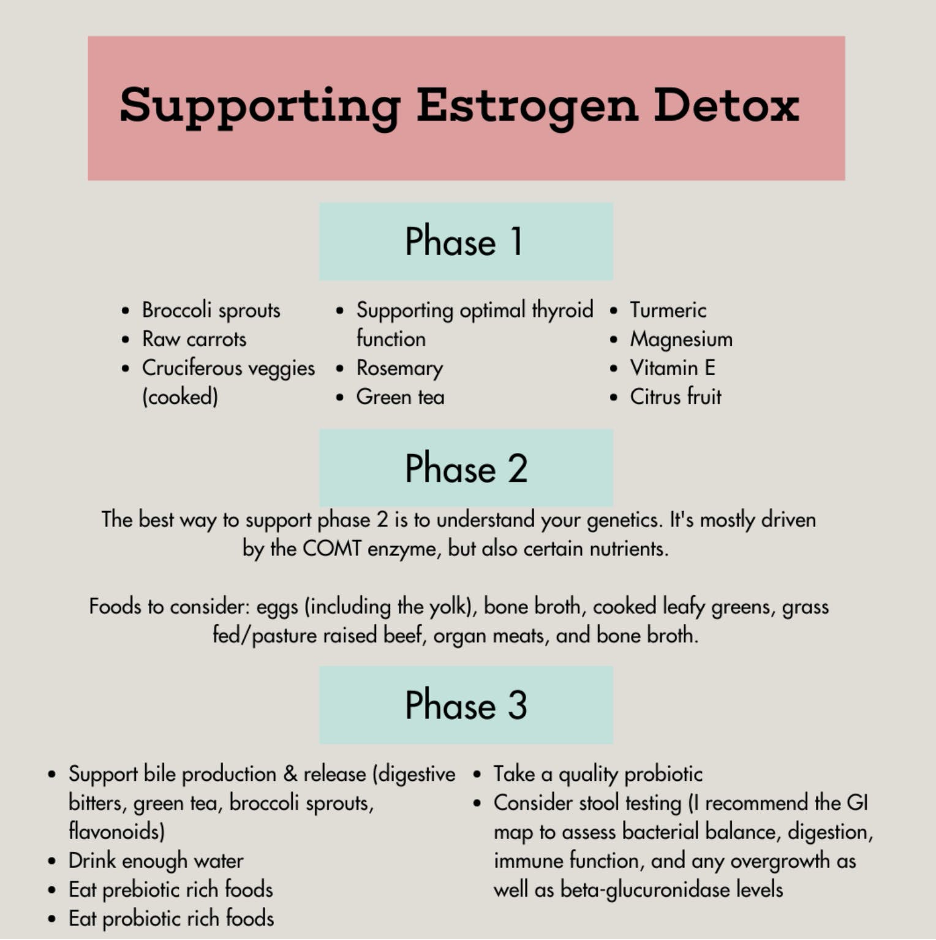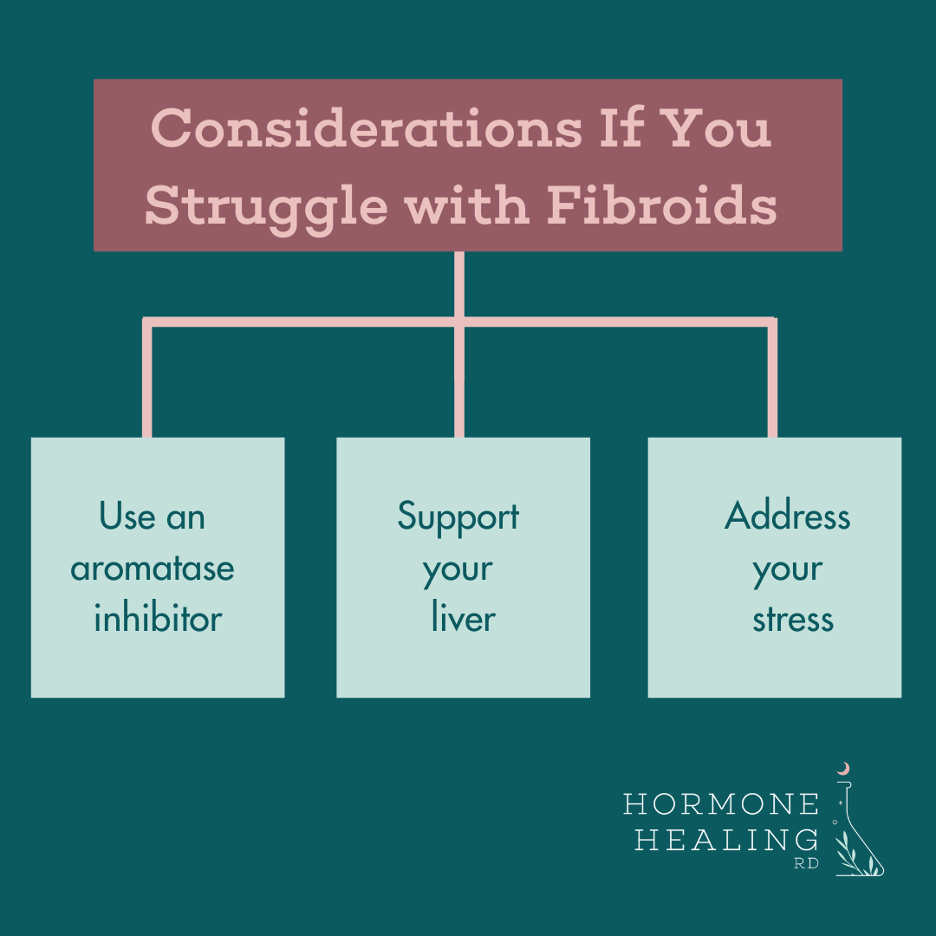Uterine fibroids are the most common benign uterine tumor. Approximately 60-65% of women develop fibroids by age 50. That’s a HUGE part of the population. Unfortunately, there is a lack of great information out there on how to naturally support your body when dealing with fibroids and what can be a contributor to their growth. I have quite a few clients that struggle with fibroids. Some of them have had myomectomies to remove them, and others haven’t gone the surgical route. I’ve seen surgery significantly help many women while others struggle with regrowth down the road. For this reason, I want to talk about the connection between our thyroid, estrogen levels, and fibroids.
Fibroids can range from being very small to being the size of a grapefruit. They typically lead to very heavy periods, pelvic pressure, constipation, and sometimes infertility. Most often, fibroid growth is blamed on excess estrogen, which I agree with, but estrogen is only part of the picture.

How does excess estrogen cause fibroids?
Fibroid tissue contains more estrogen and progesterone receptors than regular cells. It is also much higher in an enzyme called aromatase, which converts testosterone to estrogen. This takes androgens (male hormones) and turns them into estrogens, which leads to higher levels of estrogen in the body and further drives fibroid growth.

Since high levels of estrogen can lead to inflammation, reducing inflammation in the body may be beneficial. Figuring out the cause of the inflammation can be the tough part. Inflammation can occur from food intolerances, infections, trauma, excess estrogen, and environmental toxins. Inflammation can be reduced by following an anti-inflammatory diet consisting of whole foods like fruits and vegetables and grass-fed beef. Supplements like ginger and turmeric have also been known to reduce inflammation. These high levels of estrogen make me consider a few critical areas, such as liver detoxification, digestion, and thyroid function.
1. Liver Detoxification:
Our liver processes all of our estrogens and packages them up so that it can leave the body. The higher the levels of estrogen, the more work our liver has to do. Many women I work with already have livers that are struggling due to poor digestion, nutrient deficiencies, and toxic load. We can support the liver by eating adequate animal protein, liver, eggs, bee pollen, and fruit, to name a few. Our liver is responsible for hundreds of functions in the body. Detoxing estrogen is just one of those, but an essential one.
We detoxify estrogen in three phases. The first two are happening in the liver, and the last one is elimination. We eliminate estrogen through our stool, which is why we are talking about digestion next! Eating in a way that supports the liver, having daily bowel movements, and reducing toxic load can all help reduce estrogen levels in the body.

2. Digestion:
Like I previously mentioned, we eliminate estrogen through our stool. This means that if we suffer from constipation and aren’t having daily bowel movements, we will recycle that estrogen. The other area of digestion that impacts fibroids and estrogen levels is how we break down our food. If we aren’t breaking down our food properly, then we won’t absorb all of the nutrients we need and will create more inflammation in the body. More inflammation = more stress and more stress = more estrogen. It all works together!
3. Thyroid function:
When estrogen levels are high, thyroid hormone availability goes down. This is because high estrogen leads to more binding proteins and those binding proteins also bind to thyroid hormone. And boom! Your thyroid looks like it’s making enough thyroid hormone, but it’s not getting to your cells. There’s a lot of promising research on thyroid hormone and fibroids. More on that below!
How does thyroid function cause fibroids?
There’s a clear connection between thyroid health in women that struggle with fibroids, especially larger fibroids. Research has shown that women with fibroids and hypothyroidism typically have larger fibroids. There’s also been a connection with women having thyroid nodules and fibroids at the same time. Signs of low thyroid function are fatigue, weight gain, abnormal menstrual cycle, cold intolerance, constipation, hair loss, and muscle aches and cramps.
When you think about how thyroid hormone impacts our hormones, it makes sense:
What should you consider if you struggle with fibroids?
It is always best to work with your healthcare practitioner when considering any interventions for your health. What I’m sharing here is general advice and should be discussed with your doctor before implementing it. I don’t know your health history, current medications, supplements, etc. so I cannot tell you if these are okay for you, but these are strategies that have been helpful for my clients.

I hope you found this is helpful! Uterine fibroids are a serious medical condition that affects too many women. Fibroids, benign tumors that come in many sizes, leave women with unbearable pain and heavy bleeding. Fibroids can be brought on by excess estrogen, poor digestion, and low thyroid function. Aside from surgery, fibroids can be controlled by using aromatase inhibitors, supporting your liver, and addressing your stress. If you are ready to take your (thyroid) health into your own hands by getting to the root cause of you imbalances, consider buying my Master Your Minerals online course, in which we teach you how to interpret your own HTMA and build a hormone-healing protocol based on your unique results.
